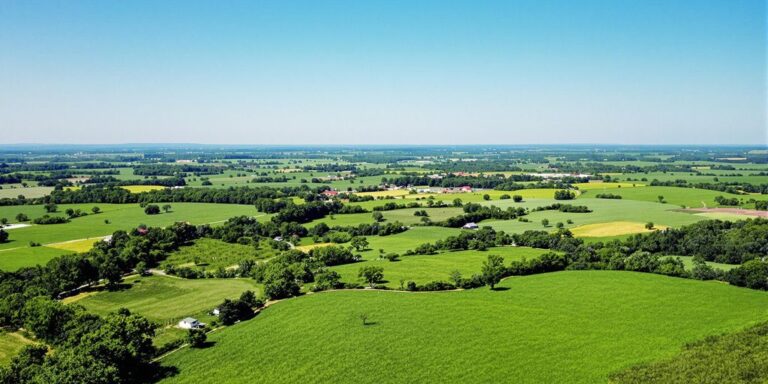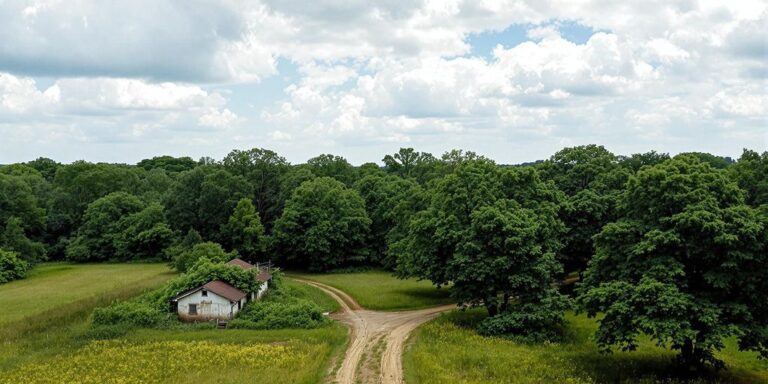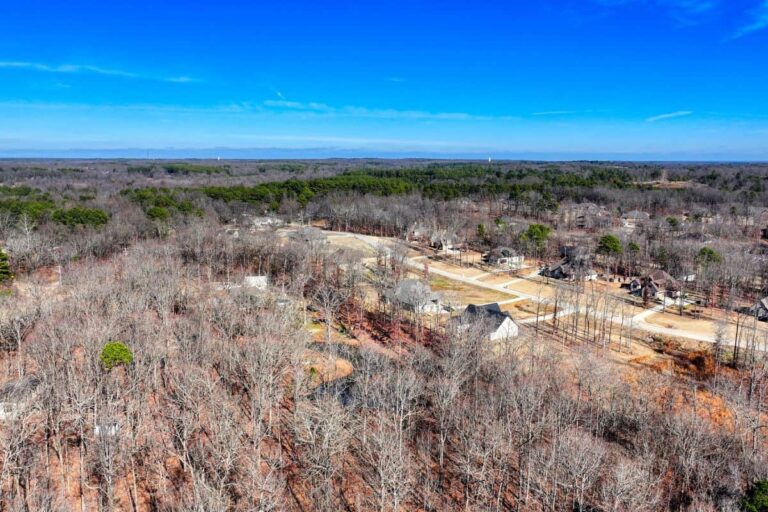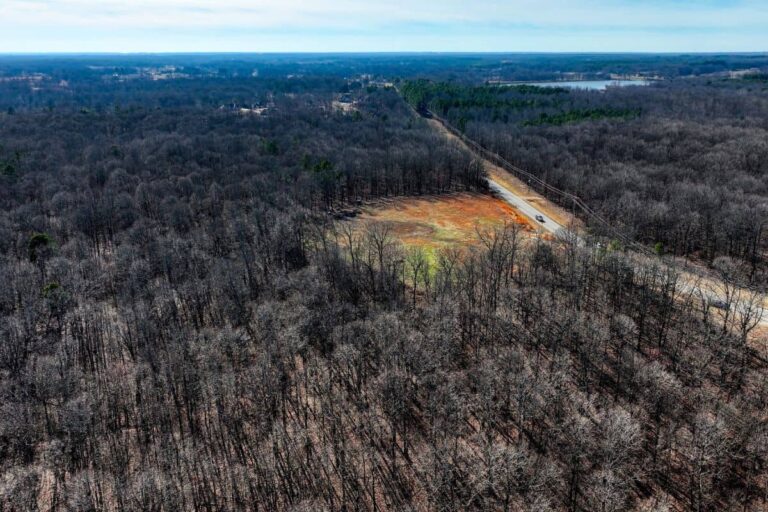When it comes to land value in Arkansas, a variety of factors come into play. Understanding how zoning regulations, accessibility, natural resources, and market trends interact can help potential buyers and investors make informed decisions. This article will explore these aspects, focusing particularly on zoning factors that affect land value in the state.
Key Takeaways
- Zoning laws dictate how land can be used, impacting its market value significantly.
- Accessibility to key infrastructure like roads and utilities can boost land prices.
- Natural resources on the property, such as water and minerals, can enhance its value.
- Market trends, including population growth, influence demand and land prices.
- Environmental factors, like soil quality and flood risks, are crucial in determining land viability.
Zoning Regulations Impacting Land Value

Zoning regulations are a big deal when it comes to figuring out what land is worth. They basically tell you what you can and can’t do with a piece of property, and that has a direct impact on its potential value. It’s not always straightforward, though. You have to really dig into the local rules to understand how they affect things.
Understanding Local Zoning Laws
Okay, so first things first: you gotta know the rules. Every city and county has its own set of zoning laws, and they can be pretty different. These laws dictate everything from what kind of buildings you can put up to how far back from the street they need to be. Understanding these local zoning laws is crucial because they set the stage for what’s possible on a piece of land. It’s not just about reading the documents, though. Talking to local planning officials can give you a much clearer picture of how things work in practice.
Types of Zoning Classifications
There’s a whole alphabet soup of zoning classifications out there. You’ve got residential (single-family, multi-family), commercial (retail, office), industrial, agricultural, and even mixed-use zones. Each one has its own set of rules about what’s allowed. For example:
- Residential zones usually limit you to housing.
- Commercial zones are for businesses.
- Industrial zones are for manufacturing and warehouses.
Agricultural zones are for farming and related activities. Knowing the zoning classification is key to understanding the potential uses—and therefore the value—of a property.
Zoning Changes and Their Effects
Zoning isn’t set in stone. It can change, and when it does, it can have a huge impact on land value. A rezoning that allows for higher-density development, for example, can send property values soaring. On the flip side, a downzoning (restricting development) can cause values to plummet. Keeping an eye on proposed zoning changes and understanding the local political landscape is essential for anyone involved in real estate. It’s all about anticipating what might happen and how it will affect the market.
Zoning changes can be a double-edged sword. While they can create opportunities for some, they can also create headaches for others. It’s important to weigh the potential benefits against the potential risks before making any decisions.
Accessibility and Its Influence on Land Value
Accessibility plays a huge role in determining land value in Arkansas. It’s not just about how easy it is to get somewhere, but also the cost associated with that access. Land that’s close to major roads or urban centers usually commands a higher price because it’s more convenient for various uses. However, increased accessibility can also bring some downsides, like more traffic or noise, which can negatively affect land value.
Proximity to Major Roads
Being close to major roads is generally a plus. It makes transportation of goods and people easier, which is especially important for businesses and agriculture. Think about it: a farm that’s right off the highway can get its produce to market much faster than one that’s miles down a dirt road. This convenience translates to higher land values. However, there’s a sweet spot. Being too close to a busy road can lead to noise pollution and safety concerns, which can decrease the desirability of residential properties. Here are some considerations:
- Ease of access for commercial vehicles
- Visibility for businesses
- Potential for increased traffic and noise
Impact of Urban Development
Urban development significantly impacts land values. As cities expand, the demand for land increases, driving up prices. Land on the outskirts of a growing city becomes more valuable because it has the potential to be developed into residential, commercial, or industrial properties. This is especially true in areas like Central Arkansas, where development trends are constantly shifting. The agricultural land value can change dramatically as urban sprawl encroaches on farmland. Here’s a quick look at how urban development affects land value:
- Increased demand for housing
- Expansion of commercial opportunities
- Higher property taxes
Urban development can create both opportunities and challenges for landowners. While it can increase land values, it can also lead to higher taxes and increased regulation. It’s important to carefully consider the potential impacts of urban development before making any decisions about your land.
Transportation Infrastructure
Good transportation infrastructure is essential for economic growth and development, and it directly affects land values. The presence of well-maintained roads, highways, and public transportation systems makes land more accessible and desirable. Areas with good transportation infrastructure tend to attract more businesses and residents, which drives up demand for land. Consider these points:
- Availability of public transportation
- Condition of roads and highways
- Proximity to airports and railways
Natural Resources and Land Value

Natural resources can really change how much land is worth. If a piece of land has water, timber, or minerals, it’s probably going to be worth more than land without those things. But, there are also rules about using these resources that can make things complicated.
Water Sources and Agricultural Potential
Having water on your land is a big deal, especially if you want to farm. Access to water can make or break a farm. If you’ve got a good water source, you can grow more crops and raise more livestock. This makes the land more valuable. But, you also have to think about water rights and making sure you’re not using too much water or polluting it.
Timber and Mineral Rights
If your land has timber or minerals, you could be sitting on a goldmine. You can sell the timber or lease the mineral rights to companies that want to extract them. This can bring in a lot of money. But, you need to know what you’re doing. You have to understand the market for timber and minerals, and you have to deal with the legal stuff, like mineral rights and environmental regulations. It’s important to know exactly what rights you have and what the rules are before you start cutting down trees or digging in the ground.
Environmental Regulations
Environmental rules can have a big impact on land value. If you want to develop your land, you have to follow these rules. This can cost money and time. For example, if your land has wetlands, you might not be able to build on it. Or, if your land is near a protected area, you might have to follow special rules to protect wildlife. These rules can make your land less valuable.
Environmental regulations are there for a reason. They protect our natural resources and keep our environment healthy. But, they can also make it harder to develop land and increase the cost of doing business. It’s a balancing act.
Market Trends Affecting Land Prices
Economic Growth in Arkansas
Arkansas’s economy plays a big role in land values. When the economy is doing well, businesses expand, people have more money, and demand for land goes up. This can lead to higher prices, especially in areas with good job opportunities. For example, growing industries might need land for new factories or offices, pushing up prices in those areas. It’s all connected – a strong economy often means a stronger real estate market.
Population Increases and Demand
More people moving to Arkansas also affects land prices. As the population grows, there’s more demand for housing, businesses, and services. This increased demand can drive up land values, particularly in popular areas or near cities like Little Rock. The more people want to live somewhere, the more valuable the land becomes. It’s a simple supply and demand thing.
Investment Opportunities
Arkansas land can be a good investment. Land prices can go up over time, giving investors a return on their money. Plus, land can be used for different things, like farming, building houses, or even just holding onto it for future development. The potential for appreciation makes land an attractive option for many investors.
Investing in land can be a long-term strategy. It’s not always about quick profits, but about holding an asset that can grow in value over time. Factors like location, zoning, and potential use all play a role in how good of an investment a piece of land might be.
Environmental Considerations in Land Valuation
Soil Quality and Agricultural Viability
Soil is more than dirt under your feet—it’s the backbone of any farm or garden. Healthy soil can make or break a farm’s success. Small differences in texture and nutrients show up fast in yields. Here’s a quick look:
| Soil Type | Drainage | Crop Suitability |
|---|---|---|
| Sandy | Excellent | Root veggies only |
| Clay | Poor | Rice, pasture |
| Loam | Moderate | Most row crops |
- pH level: Too acidic or alkaline can lock up nutrients.
- Organic matter: More means better water retention and structure.
- erosion: Losing topsoil cuts productivity each year.
Even a slight slope can send water pooling and wash away precious topsoil during a heavy rain.
Flood Risks and Natural Hazards
Flood zones aren’t just lines on a map—they affect insurance, resale, and safety. If your land sits near a creek or in a low spot, you might see water standing for days after a storm. Toss in other threats like tornado debris or drought, and you’ve got a list to check:
- Identify floodplain status with local planning offices.
- Check if a recent tornado or hail event hit the area.
- Inspect for signs of ponding, cracks, or stressed vegetation.
Wildlife Habitats and Conservation
Wild critters can drive up or drag down your land’s worth. A patch of trees might shelter deer and songbirds, but it can also trigger stricter rules on clearing or building. Think about these points:
- Endangered species: A nest or den can limit your options.
- Conservation easements: You might earn tax breaks by protecting habitat.
- Buffer zones: Some wetlands need a no-build strip around them.
Balancing development with habitat protection keeps land usable and avoids fines or forced restoration later.
Regional Variations in Land Value
Arkansas land values aren’t uniform; they shift quite a bit depending on where you are in the state. What might be a steal in one county could be overpriced in another. It’s all about location, location, location, and what that location offers.
Northwest Arkansas Land Prices
Northwest Arkansas, especially around Fayetteville and Bentonville, has seen significant growth in recent years. This area is experiencing a boom, and land prices reflect that. Expect to pay a premium here, driven by the expanding job market and quality of life. The Ozark Mountains also add to the appeal, but accessibility can be a factor, with some areas being more remote than others.
Central Arkansas Development Trends
Central Arkansas, anchored by Little Rock, presents a different picture. There’s a mix of residential, commercial, and industrial development, which influences land values. Proximity to the city center and major transportation routes is key. You’ll find a range of prices, depending on the specific location and intended use. Property taxes also play a role in the overall cost of owning land in this region.
Delta Region Agricultural Land
The Delta region of Arkansas is primarily agricultural, with vast stretches of farmland. Land values here are often tied to the productivity of the soil and access to water resources. While prices might be lower compared to Northwest or Central Arkansas, factors like commodity prices and government subsidies can significantly impact the market. Also, keep an eye on environmental regulations, as they can affect farming practices and, consequently, land value.
Understanding these regional differences is crucial for anyone looking to buy or sell land in Arkansas. Each area has its own unique set of factors that influence prices, so doing your homework is essential.
Financial Factors in Land Acquisition
Property Taxes and Maintenance Costs
When you’re thinking about buying land, it’s easy to get caught up in the initial price tag. But don’t forget about the ongoing expenses! Property taxes in Arkansas can vary quite a bit depending on the county and the land’s classification. You’ll also need to factor in maintenance costs. Even vacant land needs some upkeep to prevent it from becoming overgrown or attracting unwanted attention. These costs can impact the long-term affordability of your investment. Understanding local tax policies is key.
- Property taxes
- Maintenance (mowing, clearing brush)
- Insurance (liability, if applicable)
It’s a good idea to get a clear picture of these recurring costs before you commit to buying. Unexpected expenses can quickly eat into your budget and make land ownership less appealing.
Financing Options for Buyers
So, you’ve found the perfect piece of land. Now, how are you going to pay for it? Luckily, there are several financing options available. Traditional bank loans are a common choice, but credit unions and specialized lenders also offer land financing. Some sellers might even be willing to offer owner financing, which can be a great option if you’re having trouble getting approved for a traditional loan. It’s always a good idea to shop around and compare rates to find the best deal. Real estate investors often compare rates to find the best deal. Explore financing options carefully.
- Bank loans
- Credit union loans
- Owner financing
Legal Fees and Closing Costs
Don’t forget about the legal side of things! Buying land involves a number of legal fees and closing costs. You’ll need to pay for things like title searches, surveys, and recording fees. These costs can add up quickly, so it’s important to factor them into your budget. A title search ensures that there are no legal issues with the property’s ownership.
| Fee Type | Estimated Cost |
|---|---|
| Title Search | $150 – $500 |
| Survey | $500 – $1,500 |
| Recording Fees | $50 – $200 |
| Attorney Fees | $500 – $2,000 |
Wrapping It Up
In summary, understanding the environmental and zoning factors that influence land value in Arkansas is key for anyone looking to buy or invest. From the type of land use to its accessibility, these elements play a big role in determining how much a piece of land is worth. Natural resources can add value, but they come with their own set of challenges. Plus, zoning laws can limit what you can do with the land. So, whether you’re eyeing a plot for farming, building a home, or just as an investment, it’s important to do your homework. The Arkansas land market has a lot to offer, but knowing the ins and outs can make all the difference in making a smart purchase.
Frequently Asked Questions
What are zoning regulations and how do they affect land value?
Zoning regulations are rules set by local governments that determine how land can be used. They can affect land value because certain uses, like commercial or residential, might be more valuable than agricultural land.
How does accessibility influence land prices?
Accessibility refers to how easy it is to reach a piece of land. Land that is close to major roads or cities usually costs more than land that is far away because people want to live and work near those areas.
What natural resources can increase the value of land?
Natural resources like water, timber, and minerals can make land more valuable. For example, land with good soil for farming or forests for timber might be worth more.
What market trends should I consider when buying land in Arkansas?
Market trends include things like economic growth and population increases. If more people are moving to an area, the demand for land goes up, which can raise prices.
What environmental factors should I think about before purchasing land?
You should consider things like soil quality, flood risks, and wildlife habitats. These factors can affect how you can use the land and its overall value.
How do regional differences impact land prices in Arkansas?
Different areas in Arkansas have different land prices. For instance, land near cities might be more expensive than land in rural areas because of demand and available services.






